At the meeting to deploy the private economic development plan on November 5, exactly 6 months since the Politburo 's Resolution 68 on private economic development was issued, Ho Chi Minh City set a target of having 750,000 private enterprises by 2030, contributing 55%-58% of GRDP and 50%-55% of the city's total budget revenue. There are 8 groups of solutions proposed to gradually realize this goal.
Over the past six months, the city has demonstrated a proactive approach and a direct approach to key points that are holding back private economic resources, along with increasing the capacity to implement strong enough commitments for this “most important driving force” economic sector.
The most obvious manifestation is the presence of joint ventures and private Vietnamese corporations in each strategic infrastructure project, especially urban and transport infrastructure. Typical examples are Vingroup investing in the Can Gio railway, researching the Can Gio - Vung Tau connection; Thaco Truong Hai researching investment in the Ben Thanh - Thu Thiem railway; Becamex researching investment in the Bau Bang - Cai Mep railway; Sovico researching investment in Metro line No. 4...
This is a concrete demonstration of the change in thinking and institutions to operate according to that thinking. Ho Chi Minh City has proposed amending and supplementing Resolution 98/2023/QH15 to create a legal basis to remove bottlenecks, unblock resources, and attract strategic investors in the fields of high technology, urban railways, green energy, and free trade zones.
In terms of administrative reform and digital transformation, the city has accelerated the "online" connection of inter-sectoral and inter-ministerial data with the city, expanded online public services, received documents 24/7, along with decentralization and stronger authorization to specialized agencies. At the same time, it has shifted from "pre-inspection" to "post-inspection", applied the model of "one door - one decision - one responsible contact" in receiving and handling investment documents...
In particular, focusing on how to implement commitments and the results achieved, such as the Chairman of the Ho Chi Minh City People's Committee directly directing the removal of "blood clots" has resolved 616/838 projects and land lots with a total investment of more than 425,000 billion VND, an area of 2,130 hectares, reaching a rate of over 73%, bringing confidence of businesses in the city's investment environment.
It is also worth noting that in addition to prioritizing and promoting the capacity of domestic private enterprises, the city government also connects FDI enterprises with domestic enterprises to form new industrial and service production chains, creating strong, balanced, and sustainable investment attraction, especially in the technology sector.
Private enterprises have also increased their capabilities and presence in strategic locations, such as working with ministries and cities to implement large data center projects (Big Data Center) of strategic investors, serving digital data infrastructure, cloud computing and digital government development.
Or, in the program of developing human resources and high-quality education, the enterprise-university-State cooperation mechanism is establishing a training program for digital skills, technology skills, English and international expertise for the workforce; training 10,000 human resources for new industries, focusing on green transformation, data and innovation from now to 2030. .
Obviously, when the State focuses on removing and perfecting mechanisms and legal corridors, businesses will have the basis to overcome barriers, clear bottlenecks, contribute brainpower, capital, and production capacity to operate a dynamic and developing "market". However, challenges remain such as: the rate of dissolution and suspension of business operations compared to the beginning of the year, although decreased, is still high; some communes and wards lack specialized human resources in the fields of finance, construction, and urban management, which affects the quality and progress of administrative procedure settlement...
These limitations require a stronger pace of reform, innovation in management methods, and more extensive application of technology in processing investment and land records. It is hoped that central ministries and branches will soon issue specific guidelines on the mechanism to support digital transformation for business households and small enterprises. There will be specific guidelines on the process of accessing the Investment Support Fund under Decree 182/2024/ND-CP, helping businesses have more resources to innovate technology and green transformation. At the same time, empower the city to completely handle backlogged projects and land plots, freeing up social resources for investment and development.
Source: https://www.sggp.org.vn/khi-kinh-te-tu-nhan-tang-toc-post822383.html


![[Photo] Heavy damage after storm No. 13 in Song Cau ward, Dak Lak province](https://vphoto.vietnam.vn/thumb/1200x675/vietnam/resource/IMAGE/2025/11/08/1762574759594_img-0541-7441-jpg.webp)









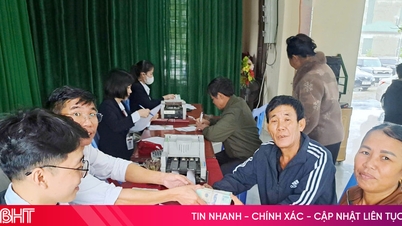




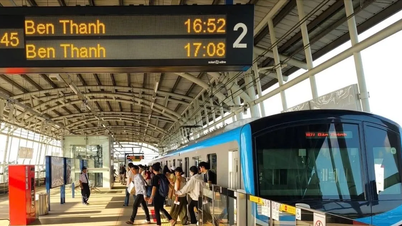


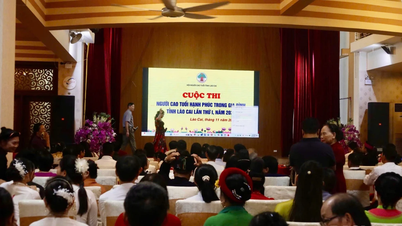


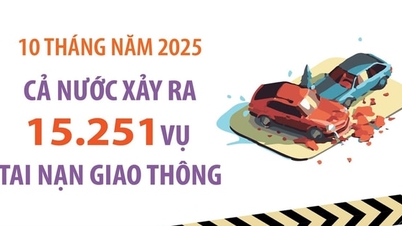













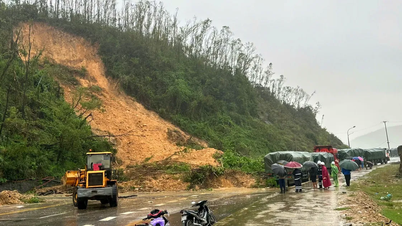



![[Video] Hue Monuments reopen to welcome visitors](https://vphoto.vietnam.vn/thumb/402x226/vietnam/resource/IMAGE/2025/11/05/1762301089171_dung01-05-43-09still013-jpg.webp)














































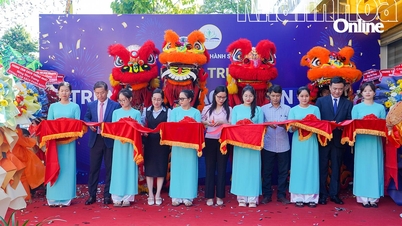





















Comment (0)